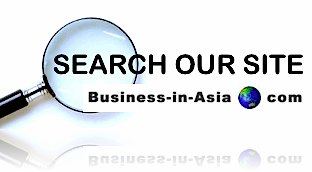How to Do Business Successfully in Asia
For nearly 15 years our company, Runckel & Associates, has been fortunate enough to have worked with and helped a wide range of companies to do business in Asia. In addition to building our own consulting business, we also have built our our biotech business in Asia and currently are building a green energy company based on turning agricultural waste into automotive fuels.
Each year I travel several times a year with Executive MBAs in their last months of their programs and help to introduce these groups to Asia. Most of the individuals in these groups are visiting Asia for their first time. During these trips we meet with many Asia specialists and often at the conclusion of the trips, I am asked by individuals in the groups to distill some of what I have learned in Asia over the last 45 years. I am hesitant to do this because even at my advanced age, I am still learning everyday and fully expect to be doing so in the future right up to the time I finally decide that “enough is enough”.
Below are some thoughts on what I believe is important
How to Do Business Successfully in Asia
- Take a Long Term View: Build your Organization for future growth
- Build Relationships based on trust and respect - action speaks louder than words so ensure you not only “talk the talk but that you also walk the walk”. Be fair, don’t take undue advantage, be consistent. Always be polite and respectful.
- Leave your ego and your temper at home - a surface calm and a willingness to listen are always appreciated
- Don’t assume you have all the answers - listen more and talk less. Always observe - you will be amazed how much you can learn if you are willing to be receptive.
- Things in Asia are not necessarily better nor worse than where you are from - they are certainly different. Value that diversity. Take the time to appreciate the local culture and try to learn a little of the language, at least to be polite. It will be appreciated.
- Sit down before you commence and sit down periodically at least each quarter and think about what you want to accomplish and articulate this to your team. Work with a clear vision & objective - develop a well thought out and researched plan and don’t be shy to change it. Market and government policies change frequently - be prepared and adapt.
- Writing often helps develop clarity - a written business plan, written position descriptions, a company vision and mission statement that are developed and discussed with employees are all a help in operations.
- Send Your Best People to Asia: It is where the Opportunities and Challenges both are Greatest
- Train and Develop Local Talent - the companies that are most succesful are those that localize quickly and do not limit opportunities for their locally hired employees. Don’t expect that you can “parachute in and parachute out” decision makers - empower your local staff.
- Build a Brand Name - it is where true value lies.
- Don’ts treat Asia as one Market and even be hesitant of treating one country as one market - often markets in Asia are more fractured. For example, China is made up of hundreds of markets, Vietnam of at least a half dozen and maybe more markets - think local
- Don’t try to make decisions thousands of miles away
- Don’t think you can understand Asia through reports, newspapers and magazines - you need to be there
- Don’t try to sign a definitive agreement - it will take forever and be difficult to execute
- Don’t just copy what you have done succesfully back home, adapt to the local conditions
- Don’t bring in outdated equipment and product - bring your best
- Don’t think that China or Vietnam is communistic and not market-driven - both countries are much more capitalist than much of Europe
- Don’t think you have to be in all markets - find your niche and build your expertise and organization there
About the Author:
Christopher W. Runckel, a former senior US diplomat who served in many counties in Asia, is a graduate of the University of Oregon and Lewis and Clark Law School. He served as Deputy General Counsel of President Gerald Ford’s Presidential Clemency Board. Mr. Runckel is the principal and founder of Runckel & Associates, a Portland, Oregon based consulting company that assists businesses expand business opportunities in Asia. (www.business-in-asia.com)
Until April of 1999, Mr. Runckel was Minister-Counselor of the US Embassy in Beijing, China. Mr. Runckel lived and worked in Thailand for over six years. He was the first permanently assigned U.S. diplomat to return to Vietnam after the Vietnam War. In 1997, he was awarded the U.S. Department of States highest award for service, the Distinguished Honor Award, for his contribution to improving U.S.-Vietnam relations.

WWW.BUSINESS-IN-ASIA.COM
Follow us on Twitter: @InsightNewsAsia
Copyright © 2013: Runckel & Associates, Inc
Visit our other website: Asia-Art.net


|
|